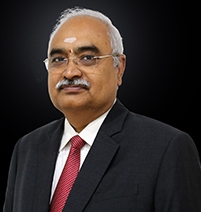Remote patient management (RPM) improves quality of life for kidney patients undergoing Peritoneal Dialysis. It is important for kidney patients to really consider a lifestyle changing treatment and adoption of an alternative.


The healthcare ecosystem continues to battle the COVID-19 outbreak, as different parts of the country draw out unlock strategies. However, it has not been a smooth ride for non-COVID patient’s especially Chronic Kidney Disease (CKD) patients. According to a study, there are around 0.2 million kidney disease patients in India who require a total of 34 million dialysis sessions every year[i]. Owing to mobility restrictions, it is important for kidney patients to really consider a lifestyle changing treatment and adoption of an alternative, more convenient way of carrying out therapies, such as home-based dialysis or Peritoneal Dialysis (PD).
Home-based dialysis or Peritoneal Dialysis (PD).
PD is a form of standard dialysis therapy, which uses the peritoneum in a patients’ abdomen as the membrane through which fluid and dissolved substances are exchanged with the blood. It is a very convenient, home-based procedure which can be done by the patient following basic training and hygiene guidelines. Peritoneal Dialysis is of two types, Continuous Ambulatory Peritoneal Dialysis (CAPD) and Automated Peritoneal Dialysis (APD). CAPD involves manual fluid exchanges 3-4 times a day, whereas, APD a more preferred option is performed at night with the assistance of mechanical devices.
PD should become a preferred choice of treatment therapy for many patients for its various advantages. Infact, now, with the deployment of IT-enabled patient monitoring systems or Remote Patient Management (RPM), home care treatment such as PD is being embraced more than ever to aid both doctors and patients. This would not just help manage the disease better but also improve the overall quality of a patient’s life.
APD with RPM is today made possible through cloud-based software such as Share source which provides seamless two-way communication between patient’s home and the hospital care team and helps to promptly identify patients with higher risk of complications. The cost/benefit analysis is strongly in favour of the APD with RPM modality versus APD without RPM.
The COVID-19 pandemic has posed many challenges
The COVID-19 pandemic has posed many challenges to patients with end stage kidney disease who are on maintenance Haemodialysis. Patients who have opted PD as the form of long-term dialysis are safer and are managing their disease better compared to those on Haemodialysis. PD helps patients to perform dialysis at home without risk of exposure to other infectious diseases including COVID-19 infection.
With the advancements in technology and data connectivity, these patients dialysis parameters can be remotely monitored and required treatment changes can be made without physically meeting the patient. This is done through the Remote Patient Monitoring (RPM). The Clinicians Doctors can optimize the dialysis treatment and patient management with the use of RPM and in addition reduce the administrative burden. Moreover, the use of automated peritoneal dialysis (APD) theoretically reduces the rate of peritonitis and improves quality of life”says
RPM has the potential to improve patient outcomes undergoing PD by facilitating virtual clinical presence, enabling patient-generated clinical documentation and promoting self-monitoring. It enables the clinicians to closely monitor and interact with patients, provide feedback in real-time, and initiate early interventions such as prescription modifications and contextual clinical decision support. Thereby, allowing early detection and interventions to avoid hospital visits.
RPM provides an opportunity to increase the uptake and technique survival of the home dialysis modalities by improving patient satisfaction and outcomes, leading to cost savings. People with CKD can now successfully use RPM without jeopardizing their safety due to Covid-19. The technology used in RPM is reliable and could really make a difference by connecting doctors and patients remotely.
Peritoneal dialysis (PD) have improved quality of life
Peritoneal dialysis (PD) have improved quality of life of a patient as it is cost effective and hassle-free. Now, because of RPM system, treatment is even better taken care of, remotely observed and altered regularly. RPM also offers further advantages with the current geographic and medical limitations, as it spares the necessity of visiting hospital for treatment analysis. Since timely clinical evaluation is needed in most of the cases, RPM has optimized treatment management connecting the home patient to the clinic.
A key to the success of home-based dialysis, particularly PD, is patient education and training. Thus, enabling PD through platforms like RPM in such challenging times would be highly feasible for patients to improve knowledge regarding self-care, feel the presence of the healthcare professionals remotely while on dialysis at home for better compliance with the dialysis regime and to feel connected with healthcare professionals. Thus,making the treatment remotely accessible and easy.


Dr S Padmanabhan
Nephrologist & Transplant Physician
NU Hospitals, Bengaluru.
[i]https://www.nhp.gov.in/pradhan-mantri-national-dialysis-programme_pg











